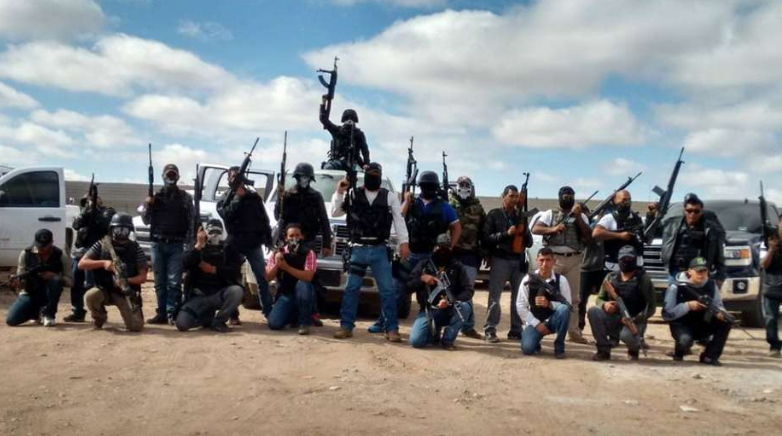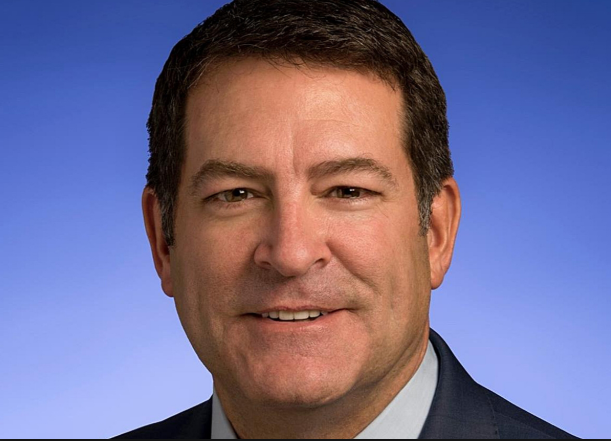By Todd Bensman as published at Center for Immigration Studies on February 26, 2019

Calling for Mexico’s drug-trafficking cartels to be designated as foreign terrorist organizations has long earned easy gold stars for the GOP side of the ledger, with really no possible downside. After all, who is not repelled by organizations that behead victims, run houses of torture, co-opt government, and slaughter tens of thousands for control of border-crossing zones into the United States?
Reps. Chip Roy (Texas) and Mark Green (Tenn.), both freshmen Republicans, are the latest to call for the terrorist designation, reopening an old debate that is perhaps worth having again in this new political era where border security and walls occupy the forefront of national consciousness. The proposal is laudatory for that reason alone, and also the fact that Mexican cartels occupy a key, often under-acknowledged, pedestal of blame for virtually all border mayhem undergirding President Trump’s emergency declaration. The cartels operationally control almost all mass illegal immigration across the U.S. southern border, for instance, so enhanced targeting of them may have some utility in restricting that.
But sponsors of the latest call to designate the cartels will need to present stronger arguments as it goes forward.


In a letter last week to U.S. Secretary of State Mike Pompeo, to be followed shortly by introduction of a bill, Reps. Roy and Green ask for the formal designation of the Reynosa/Los Metros faction of the Gulf Cartel, the Cartel Del Noreste faction of Los Zetas, and the Jalisco New Generation offshoot of the Sinaloa Cartel. Their letter argues the designation is warranted given that these organizations use terror to intimidate and advance their agenda, as well as threaten the stability of governments across the globe.
A foreign terrorist organization designation opens a whole new armory of American weaponry that can be used to debilitate the cartels and all who lend support and assistance to them, just like ISIS: prosecution of associates for “material support”, the freezing of a broader range of funds, immigration restrictions on all members of the organizations, and travel restrictions on many others. These tools would add to already significant counter-cartel assets already in use, such as the provisions allowed by the Foreign Narcotics Kingpin Designation Act; any redundancies could potentially be squeezed out later, it could be argued.
But old questions should be asked and answered with this new proposal. For instance, can the State Department even stamp the terrorist designation on these organizations?
Square Peg, Round Hole
The short answer is: Yes, of course, legally. Few constraints limit the Executive Office of the President from declaring America’s enemies and directing resources against them through its own processes.
But doing so occurs by following a careful, fairly standardized process that follows guidelines and criteria, all of which pivot on the definition of terrorism in the Foreign Relations Authorization Act (140(d)(2)), which defines terrorism as “premeditated, politically motivated violence”.
Designating Mexican drug cartels may present not only a departure from traditional uses of a terrorism designation pinned to “politically motivated violence”, but also may have to stretch quite a way to reach that threshold. Let me explain.
There is no universal global criteria-guided definition of terrorism among the world’s community of developed nations. Not even the various U.S. homeland security agencies are on the same page with their criteria setting forth what constitutes terrorism and terrorist organizations that are officially fightable. There are more than 20 different legal U.S. government definitions of the term among the agencies, such as the FBI, Department of Defense, and Department of Homeland Security; the State Department alone has gone through seven definitions over the last couple of decades. However, what they all pretty much have in common, in terms of calling a group out as a terrorist organization, are these ideas:
- The groups or individuals must employ the use of force or credible threat of force in pursuit of objectives that impact U.S. national security and economic interests. Mexican cartels: check.
- They target those traditionally perceived as non-combatants to communicate fear beyond immediate victims and targets. Mexican cartels: check.
- Those committing the violence are non-state or sub-state actors. Mexican cartels: check.
But, as mentioned, one more big thing is necessary to qualify for a State Department foreign terrorist organization designation: The violence and coercion have to be in the service of ideologies and aim to change or to influence governments, politics, and policy. That one is so important that it’s in almost every definition. Notably, it’s the only one missing from the Roy/Green proposal.
“These groups use terror to intimidate and advance their agenda,” the letter reads, unfortunately without articulating what that agenda is or acknowledging its linchpin importance.
Intimidating Government Counterdrug Policy with Car Bombs
The main agenda of every Mexican cartel and their campaigns of often strategically targeted violence is to earn as much profit from international drug trafficking as possible. Nowhere in any of the terrorism-definition literature, as far as I’ve ever been able to find over the years, does profit motive come up as a criterion. If anything, profit motive may be grounds for ineligibility, since the overwhelming consensus among terrorism-definition manufacturers is that violence has to be committed in service of coercing political and policy change and ought to be based in a defined political ideology.
The good news for proponents, should they choose to seriously press this matter, is that they probably can argue that Mexican drug cartels do indeed use violence and intimidation to affect government policies and politics, albeit in regard to themselves. Cartels are, after all, at the root of a great many high-expense Mexican national counterdrug policies, which cartels have sought to influence via heavy bloodshed and terror tactics. During the Calderon presidency, for instance, the Mexican military was extensively deployed throughout the country and used to stage assaults on cartel bases and take over politically compromised municipalities along the border. The cartels fought back fiercely, slaughtering supposed collaborators, detonating car bombs, attacking electrical grids, and once bringing down a military helicopter with a shoulder-fired rocket launcher.
In an interview with the author, retired Texas Department of Public Safety Captain Jaeson Jones, who spent 20 years countering Mexican cartels in both intelligence and law enforcement operations, noted that Mexican cartel violence employed to achieve national counter-drug policy change has been ubiquitous for years.
“One of the main obstacles in designating the cartels is the perception that they have no ideology or political influence,” he said. “I disagree.”
For support, Jones pointed out that in just the 2018 national elections, cartel operatives murdered 132 Mexican politicians, political candidates, and party workers in an effort to sway things toward electoral victors more inclined to cooperate with the traffickers, rather than to disrupt them. Similar operations unfolded during the 2012 elections, when cartels killed 48 politicians hostile to the drug traffickers, Jones said.
One of these that remains particularly bothersome to Jones is a case he and his intelligence team worked during and after that election. It was the case of Nuevo Laredo Mayor Benjamin Galvan Gomez, who survived a 2012 car-bomb attack by the Zetas that destroyed half of city hall. Gomez was targeted because he supported presidential candidate Enrique Pena Nieto’s anti-cartel agenda. But Gomez would turn up dead two years later, decapitated with his arms and legs cut off.
“Through our sources, we were able to learn that the assassination was due to his political support for then-candidate and later president Nieto,” Jones said, noting that his team later identified the assassins for Mexico. “He was brutally killed for his political views.”
The Question of “Should”
The natural companion to the question of whether the State Department can designate certain cartels terrorist organizations is the question of whether it should.
Any serious contemplation of moving forward with designating the four or five biggest, most lethal Mexican cartels should start with assessing how such an endeavor could be resourced and managed.
Applying the designation would come with a burden of new intelligence and enforcement regimens for U.S. homeland security agencies and a Department of Justice (FBI) already laboring under the considerable responsibilities of countering al Qaeda, ISIS, the Taliban, and more than 65 other designated groups. Americans certainly care about those groups, too, and sometimes, when one gets through like in Boston, San Bernardino, or Orlando, public perceptions of competency begin to falter. Our agencies are not given much political room for error for Islamic terror attacks.
For example, freezing assets and managing hundreds, if not thousands, of new Mexican cartel additions to terror watch lists and the No Fly list requires more hands on deck and more management so as not to divert effort from the Islamist threat. Not just for those requirements but for all the other ones, too, including adding law enforcement attaché personnel in U.S. facilities abroad that would have to deal with cartel operations that are now very globalized. Someone, somewhere is going to have to study what all that would take.
None of this is to say the proposal is a bad idea. Especially since the nation is so on the subject of border security and cartel-controlled illegal immigration. But I’m not so sure yet that it’s an entirely good idea without healthy study and some internal analysis. In past political eras, such proposals, like one in 2011 by Rep. Michael McCaul (R-Texas), didn’t go very far, in part because of vehement Mexican government opposition for reasons that were never very clear. So there are also diplomatic issues with which to contend.
Ordinarily, I’d feel inclined to write off a proposal like this as political candy with a quick caloric sugar high. But since the country is so on top of border security solutions right now, the Roy/Green proposal, with a little work and effort, should warrant serious consideration as part of a broader grouping of solutions to our southern border problem.